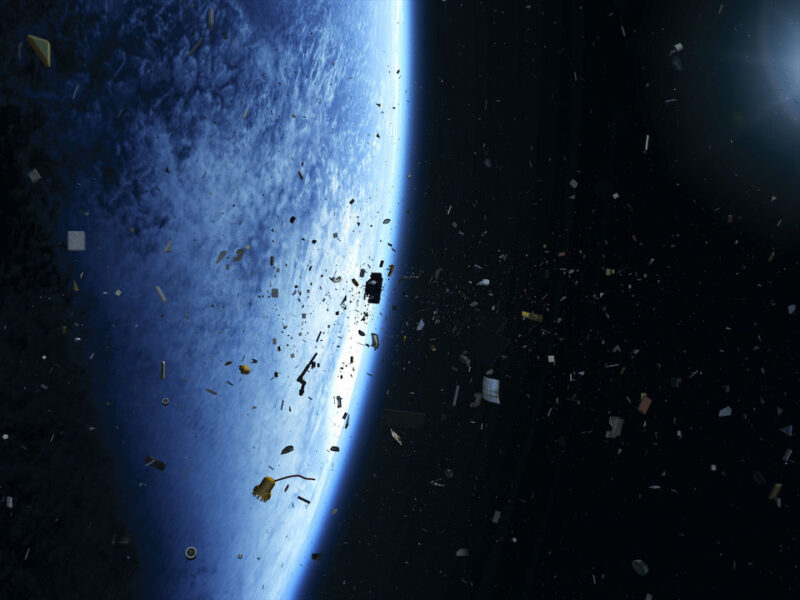Latest News

ESA illustration of space debris. Photo: ESA
The European Space Agency (ESA) finalized its Zero Debris Charter, releasing the document this week during the 2023 Space Summit in Seville, Spain. The non-binding charter calls participants to stop generating space debris by 2030.
The charter sets out a number of targets, including that a mission’s probability of generating space debris should remain below 1 in 1,000 per object. It also sets a target of 99% success for post-mission disposal, including through external means when necessary. It encourages transparent information sharing and space traffic coordination.
Airbus Defence and Space, Thales Alenia Space, and OHB announced the start of the Zero Debris Charter initiative earlier this year during the Paris Air Show. Over the last few months, more than 40 organizations collaborated on the final charter. ESA invites other space companies and organizations to register to sign the charter. There will be signing ceremonies in the first half of 2024.
“To implement the Zero Debris Charter, ESA will focus on developing ground-breaking technologies for satellite end-of-life disposal, in-orbit servicing and active debris removal. In addition, ESA will work hand-in-hand with institutions in charge of regulatory aspects,” ESA Director General Josef Aschbacher said in a statement.
Space traffic management company Neuraspace is one signatory to the chapter that was involved in creating it. COO Chiara Manfletti commented that it recognizes an “urgent need for ambitious action” on sustainability.
“While the charter is a non-legally binding agreement, it fosters a community of proactive actors working collectively to achieve space safety and sustainability with jointly defined measurable targets for 2030. Clearly, the situation in orbit will evolve, and revisiting the targets and/or new targets will be required,” Manfletti said.
Get the latest Via Satellite news!
Subscribe Now